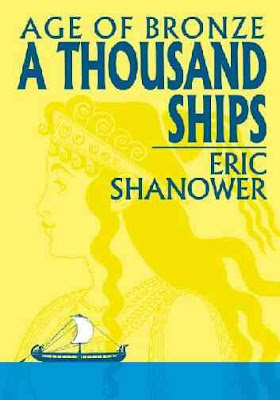Q: Where do you find inspiration for your novels?
A: Out in the world -- that's where the stories are.
Brendan Halpin
Dear Parents,
Today in Martha and Greg's class we had a "virtual" author visit, via Skype, with writer Brendan Halpin. Brendan's first novel, Donorboy, has been an 8th grade Reading Bowl book for several years, and I jumped at the opportunity to bring him (or rather, his big talking head) to school. Students prepared questions about his books and the craft of writing, the technology worked beautifully, and Brendan spent about 30 minutes talking with us from an empty classroom where he is teaching in Boston. Ask your student about it -- I think everyone really enjoyed the visit.
Another junior high class Skyped with Brendan in October, but our network crashed right in the middle of the talk. Luckily, he's a guy who enjoys connecting with teenagers, and he graciously answered the remaining questions in a video, which you can see on the Library blog, The Reticulated Pithon.
We have all of Brendan Halpin's books, some written for adults and some for teenagers, in the Paideia Library. Please feel free to come check one out sometime, and see what other resources we have for students and the whole Paideia community.
Thanks,
Anna
A: Out in the world -- that's where the stories are.
Brendan Halpin
Dear Parents,
Today in Martha and Greg's class we had a "virtual" author visit, via Skype, with writer Brendan Halpin. Brendan's first novel, Donorboy, has been an 8th grade Reading Bowl book for several years, and I jumped at the opportunity to bring him (or rather, his big talking head) to school. Students prepared questions about his books and the craft of writing, the technology worked beautifully, and Brendan spent about 30 minutes talking with us from an empty classroom where he is teaching in Boston. Ask your student about it -- I think everyone really enjoyed the visit.
Another junior high class Skyped with Brendan in October, but our network crashed right in the middle of the talk. Luckily, he's a guy who enjoys connecting with teenagers, and he graciously answered the remaining questions in a video, which you can see on the Library blog, The Reticulated Pithon.
We have all of Brendan Halpin's books, some written for adults and some for teenagers, in the Paideia Library. Please feel free to come check one out sometime, and see what other resources we have for students and the whole Paideia community.
Thanks,
Anna


 Last Friday, Paideia had a slammin' day in 4 different High School literature classes, thanks to
Last Friday, Paideia had a slammin' day in 4 different High School literature classes, thanks to  Joanna Hoffman came to school set to do one class in the morning. It was such a success that the teacher called me in Charlotte to ask,
Joanna Hoffman came to school set to do one class in the morning. It was such a success that the teacher called me in Charlotte to ask, 




























 2009 High School Summer Reading List
2009 High School Summer Reading List




 Two documents have been really interesting reading this week. First is the American Library Association's
Two documents have been really interesting reading this week. First is the American Library Association's 







